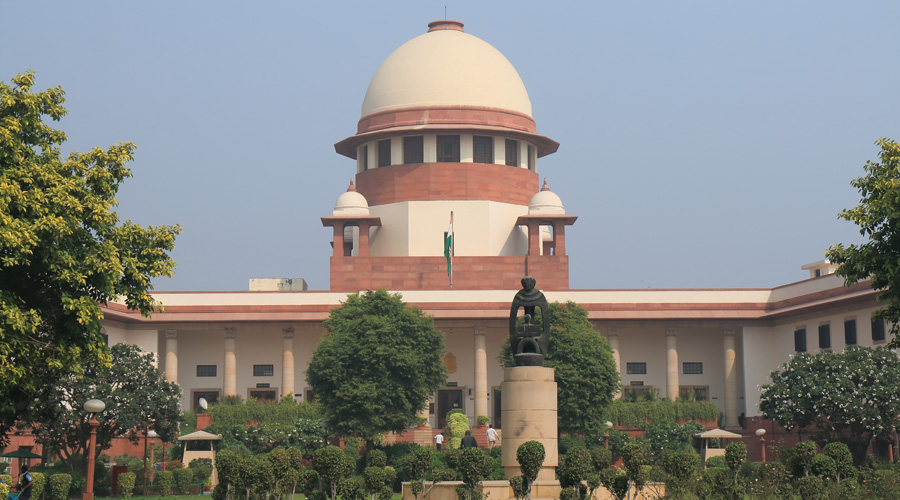Major General (retd) S.G. Vombatkere, whom the Chief Justice of India on Thursday lauded as “somebody who has sacrificed his whole life for the country” as a soldier, has been a veteran also of many battles to uphold the nation’s constitutional values.
The 79-year-old has not just challenged the constitutionality of the sedition law —which provided the context for the CJI’s remark — but also contested the earlier government decisions to make the Aadhaar card mandatory for a range of transactions and to create a National Population Register (NPR) for the ostensible purpose of identifying illegal immigrants.
While the Supreme Court had in 2017 read down the Aadhaar provision saying it could not be made mandatory except for the PDS scheme, it is yet to decide on the batch of petitions challenging the new citizenship matrix that includes the NPR, National Register of Citizens and the Citizenship Amendment Act, 2019.
Vombatkere had also been among the 150-odd military veterans who had in 2019 written to President Ram Nath Kovind expressing concern at the “politicisation” of the armed forces.
The context was BJP campaigners’ use of expressions like “Modi ji ki sena” to describe the military in their bid to milk the Balakot airstrike and the 2016 “surgical strikes” to win votes for the party in the 2019 general election.
Contacted by The Telegraph at his home in Mysore, Karnataka, Vombatkere declined to comment on the Supreme Court’s decision to admit his petition or Chief Justice N.V. Ramana’s compliment.
“The petitioner is somebody who has sacrificed his whole life for the country for his service. We cannot say it is a motivated petition,” Justice Ramana had observed.
“Sorry, I would not like to comment on the issue as it is sub judice,” Vombatkere told this newspaper. “As the matter is before the court I would not like to comment. Kindly excuse me.”
Vombatkere had served the army for 35 years, rising to the rank of major general. He had retired as additional director-general in charge of discipline and vigilance at army headquarters, New Delhi.
His petition in the apex court argues that the Constitution guarantees freedom of speech and expression, subject only to “reasonable restrictions” on the limited grounds of the interests of India’s sovereignty, integrity and security, friendly relations with foreign countries, public order, decency and morality, or in relation to contempt of court, defamation and the like.
However, the sedition law “makes every speech or expression that ‘brings or attempts to bring into hatred or contempt, or excites or attempts to excite disaffection towards the government established by law in India’ a criminal offence punishable with a maximum sentence of life imprisonment”, the petition says.
It contends that “a statute criminalising expression based on unconstitutionally vague definitions of ‘disaffection towards government’ etc is an unreasonable restriction on the fundamental right to free expression... and causes (a) constitutionally impermissible ‘chilling effect’ on speech”.
The petition recalls that the apex court had in the 1962 Kedar Nath judgment upheld the validity of the sedition law, but only after reading down the provision to mean that only comments that intended or tended to cause violence were punishable.
“It is submitted that the march of the times and the development of the law has to be taken into account in dealing with such a question now, unconstrained by the Kedar Nath holding. It is submitted that Kedar Nath reasoning has to be understood as the ratio in an era where the reading of fundamental rights was rather restrictive,” the petition says.
“There has been a sea change in understanding the scope, extent and the interrelationship of fundamental rights....”
Citing a host of constitution bench judgments since 1962, the petition says: “Each of these decisions now establish(es) that fundamental rights in the Constitution are not to be read as isolated silos or as watertight compartments; but are to be read as if the content of each fundamental right animates the other.
“The reasonableness of the restriction of free speech... will need to (be) considered afresh considering procedural as well as substantive due process embodied in Articles 14 (equality) and 21 (life and liberty).”












